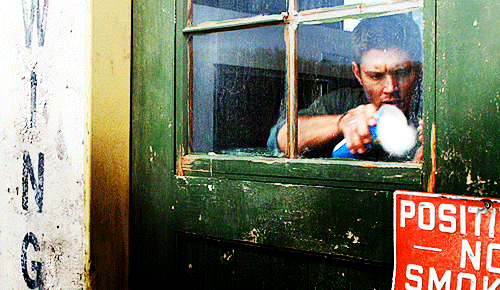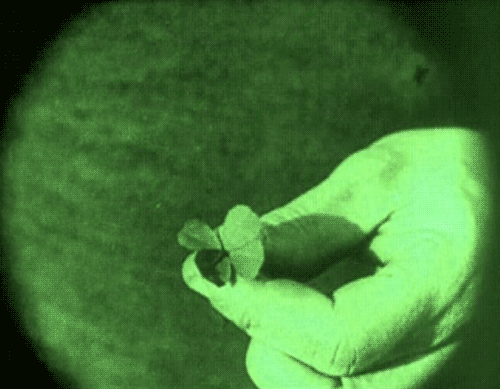Blog
Thinking about skipping the Natural Resources Subcommittees’ Budget Hearings?13 Reasons Why You Shouldn't
WASHINGTON, D.C.,
March 13, 2015
|
Committee Press Office
(202-225-2761)
In honor of Friday the 13th, here are 13 reasons to tune into Natural Resources committee hearings next week
1. Itchy Palms – According to the superstition, if the right hand itches, money is coming in, but if the left hand itches money is going out. The Administration's budget request for the U.S. Department of the Interior includes millions of new taxpayer dollars, so there will definitely be some cash flow. Tune in to see the federal government try to purchase even more federal lands, despite an existing deferred maintenance backlog estimated at $23 billion! We don’t think that can be treated with calamine lotion. 
2. Something Old, Something New, Something Borrowed, Something Blue – These hearings will cover all of your superstitious bases. Something Old – The Committee’s commitment to protecting and preserving the driving forces for the United States of America. Something New – In case you missed it, the new Chairman Rob Bishop (R-UT) brings ‘humor and candor’ to the natural resource debate. Something borrowed – the billions of tax dollars the federal government is seeking to spend beyond that which the nation can afford. Something Blue – Many of our resources themselves (i.e. water, oceans, and energy resources).  3. Opening an umbrella indoors - Most trace the belief back to the Victorian era when umbrellas’ metal spokes were a legitimate indoor hazard. Similar to those metal spokes, the increasing federal taxes and fees put American security at risk by discouraging energy research. 
4. Breaking Mirrors – The general idea here is breaking a mirror is expensive, hard to clean up, and will cause seven years of bad luck. Similarly, the Department of the Interior’s bureaus and sub-agencies have proposed and/or finalized more than 200 new costly and restrictive rules and regulations. And that’s just in the last six months. Think about what they could do in seven years.  5. Walking Under Ladders – This one goes back to Ancient Egypt - a ladder resting against a wall forms a triangle, which the Egyptians regarded as sacred and believed walking through one did nothing but harm. Well today, our worries are less about the federal government walking under a ladder, and more about it not using a ladder at all. The sad truth is that a large portion of money spent within the Department of Interior’s jurisdiction will never reach the ground floor, and therefore never deliver tangible benefits. Replace the ancient sacred triangles with agencies consumed by growing litigation costs and layers of prescriptive environmental regulations, and we have more of the same: policies that cause more harm than good.  6. Spilling Salt - Long ago, salt was a valuable and precious commodity, and therefore wasting it was considered extremely bad luck. If wasting expensive and indispensable resources is bad luck, then it is safe to say the federal Government is in trouble. Our national debt currently exceeds $18 trillion, and yet the Administration’s overall federal budget includes a $13 billion budget for the Department of the Interior. This disappointing trend of runaway federal spending fails to put forward creative solutions to ongoing problems, and in contrast, almost makes spilling a few grains of salt seem lucky.  7. Knock on Wood – We’ll leave this explanation to the master: “It's meant to harden your knuckles so you don't break them if you get into a fight. It also has the added benefit of knocking on wood. My father believed that success is a mixture of preparation and luck. Tapping the table kills both birds with one stone." –Frank Underwood Well what better way to prepare than education on the issues at stake? Though we can’t guarantee it will be solely responsible for your success, the information in these hearings will always be useful in whatever battles are on the horizon (#KeystoneXL anyone?).  8. Black Cats – This is another one that stems from the ancient Egyptians, who formerly believed that cats were good luck. According to historians, it wasn’t until King Charles I lamented over the death of his cat claiming his luck was gone that the belief was shifted. Based on the Feds’ recent actions, we’d say irrational responses to changing landscapes are pervasive among authority figures. Take the Northern Long Eared Bat (NLEB) for example. Despite admission from the U.S. Fish and Wildlife Service that the most significant threat to the NLEB is not caused by human development activities, but rather a fungal disease known as white-nose syndrome (WNS), the FWS has plans to restrict economic activities in 38 states that have little or no impact on the species.  9. Four Leaf Clovers - The Celts believed that these rare finds were powerful objects that could ward off evil. We can’t promise you safety from evil spirits, but we can promise the information in these hearings is powerful and will prove to be extremely useful to those lucky enough to attend. 
10. Throwing coins in a fountain for luck - This started with the ancient Romans as an act of appeasing the water gods. A few things might have changed in the last half century or so, but water and the rights of those responsible for it are still at risk. Currently, the U.S. Forest Service is proposing a Directive on Groundwater Resource Management that has the potential to infringe on States’ Rights and usurp state management of groundwater. We’re guessing the cost is going to be slightly higher than the change collected from the reflecting pool.  11. Considering a Horseshoe good luck - A horseshoe is considered lucky because, according to legend, the Devil can only move in a circle so when he sees a horseshoe, the gap in the middle confuses him and he turns back and won't bother you. The Devil isn’t the only thing that goes in circles, if 1,300 new federal workers are added to the Department, this will not solve the problem and the process will continue to go in circles too. Let’s hope these hearings take the shape of a horseshoe and save everyone the confusion caused by long lines and bureaucratic red tape.  12. Step on a crack and break your mother's back – While the origin of this one is a mystery, it can be traced back to the early 20th Century. What else started in the 20th Century? The Endangered Species Act, and the current onslaught of listing decisions pose harmful consequences for the economy and could potentially undermine ongoing species restoration at the state and regional level.  13. The Unlucky 13 - Also known as triskaidekaphobia, fear of the number 13 originates from the notion that 12 is a perfect number. There are 12 months in a year; days are split into two-12 hour halves, etc. For this superstition, we’ll leave you with one question: considering the fact that the fate of America’s Energy Independence is at stake (for 2016), does missing these hearings really seem like the best idea? 
|
Newsletter Sign Up
Sign up to receive news, updates and insights directly to your inbox.
